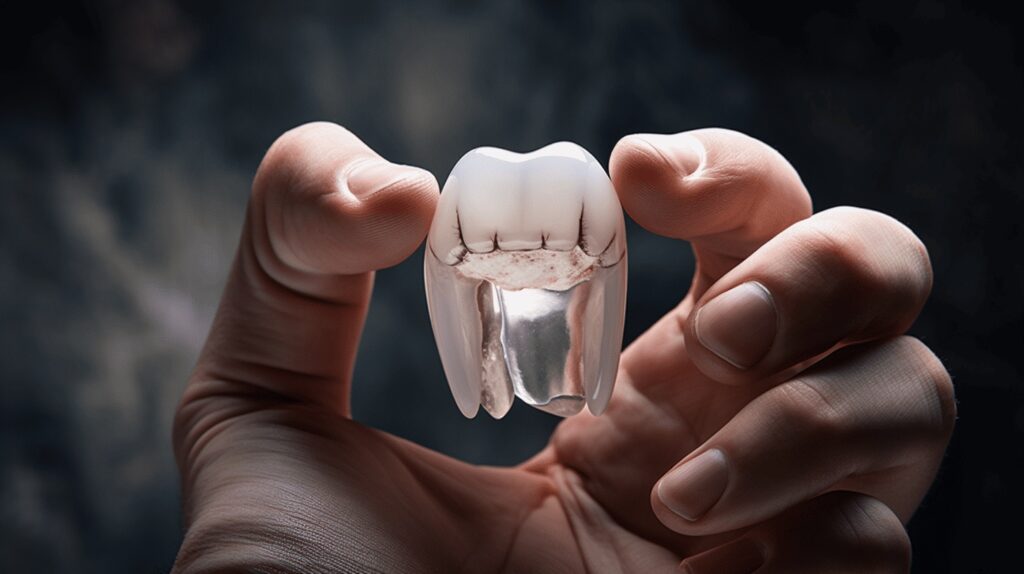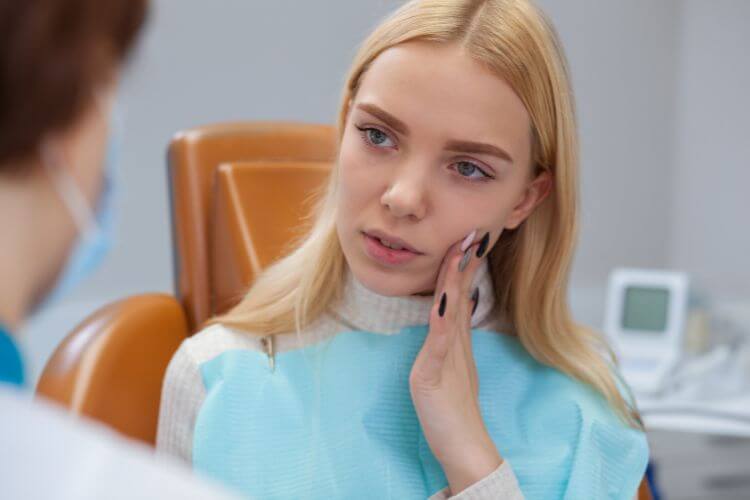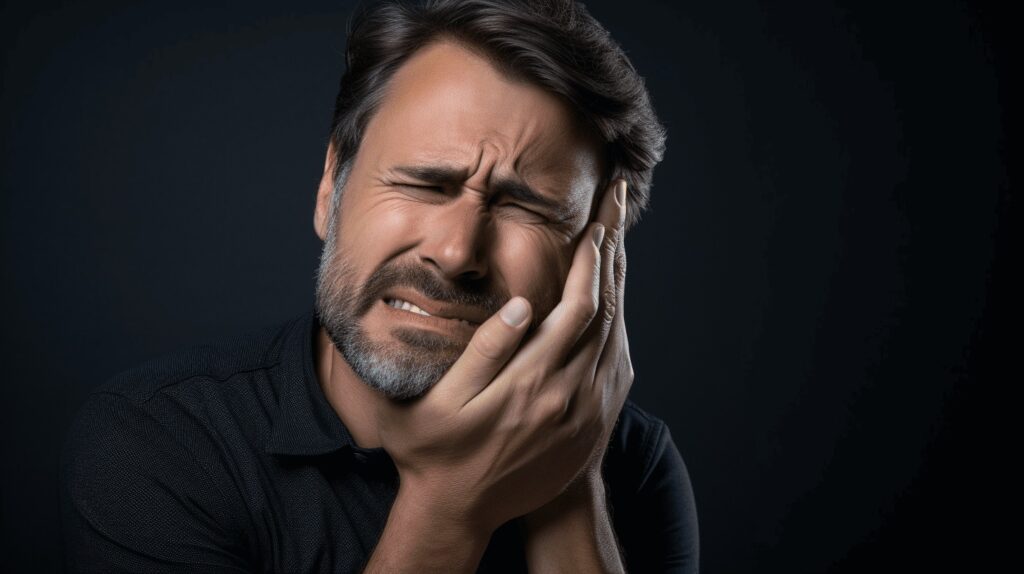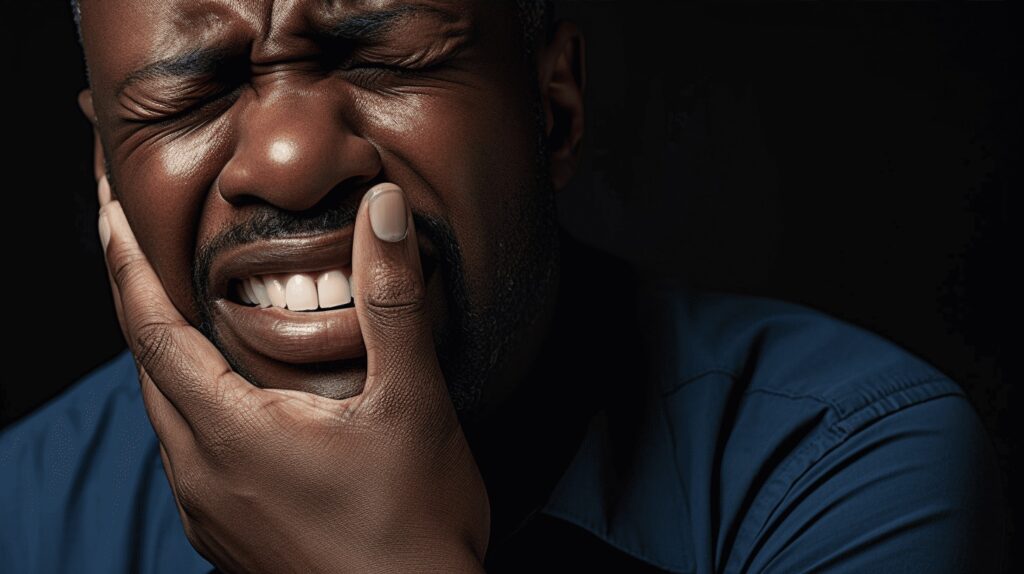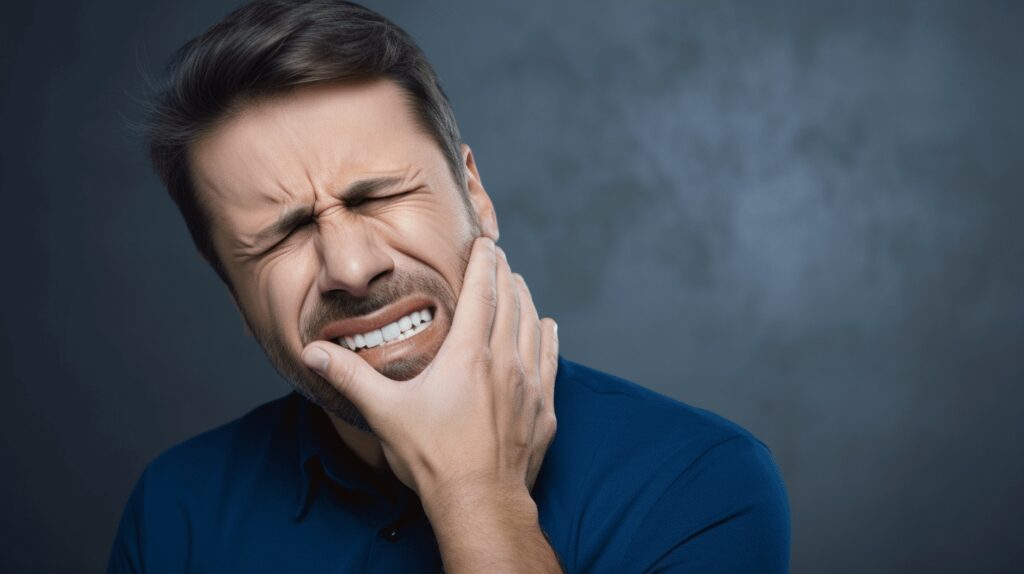Losing a tooth can be a jarring experience. 🦷 Besides the unexpected pain and shock, there’s also the immediate worry about what the loss might mean. For children, it’s a rite of passage, a sign of growing up, but for adults, it results in a very different scenario—one that requires immediate attention, swift action, and knowledge on what to do next.
In our today’s discussion, we’ll guide you through the process of emergency dental care, focusing primarily on handling knocked-out— or in medical terms, avulsed— teeth. We’ll start by exploring some statistics and prevalent instances of tooth loss among different age groups. We’ll delve deeper into common causes and risk factors before providing you with crucial, on-the-spot first aid tips if you or anyone else should ever face this situation.
Bear in mind, dental emergencies can happen anytime, anywhere, and to anyone. After all, who’s to predict when a game of weekend soccer might lead to an accidental elbow to your mouth, or a slipped fall at home results in a tooth on the floor? For such uncertainties, it’s essential to be prepared, and we’re here to help you do just that.
So, stick with us, as we peel back the layers of this less-discussed but vital aspect of oral health and offer suggestions that will hopefully ease your anxieties and boost your knowledge on the subject.
Table of Contents
Statistics and Prevalence of Knocked-Out Teeth
Smiles are universally captivating, aren’t they? However, the unforeseen circumstance of a knocked-out tooth can quickly turn charm into worry. In this section, we take a look at the statistics and prevalence of avulsed, or knocked-out, teeth. We’ll highlight the frequency of tooth avulsion incidents, sports-related tooth injuries, and even delve into tooth loss among adults. It’s more common than you think!
Frequency of Tooth Avulsion
You’ll probably gasp when you hear this! 😲 More than 5 million individuals experience a knocked-out tooth annually. With numbers soaring high, this isn’t a rare phenomenon. As astounding as it may sound, dental emergencies such as avulsed teeth cost the United States nearly $500 million every year!
Sports-related Tooth Avulsion
Whether you’re an avid sports player or a casual athlete, anyone can fall victim to sports-related dental injuries. Any sports enthusiast will know the importance of a sturdy mouthguard – and with good reason. Between 3 to 5 million teeth end up knocked out during sports activities each year. Essentially, more than 5 million gleaming smiles are temporarily disrupted due to sports!
Tooth Loss in Adults
You may think missing teeth are primarily a concern for children eagerly waiting for the tooth fairy. However, stats say something different. In reality, missing teeth aren’t confined to children. An astonishing 2.2% adults aged between 20 and 64 have no remaining teeth. Expounding on this, approximately 120 million Americans are missing at least one tooth.
Surely, all these facts and figures prompt a re-think about oral health, doesn’t it? It’s crucial for us to understand the importance of maintaining dental health and implementing preventive measures against tooth avulsion, no matter what age we are. Remember, the necessity for Emergency Dental Care can arise anytime. It’s best to be equipped with the knowledge and preparedness to keep that gorgeous smile intact! 😊
Causes and Risk Factors for Tooth Avulsion
Tooth avulsion is something we never want to experience🙅♂️. This painful condition involves the complete displacement of your tooth from its socket😮. It’s distressing, uncomfortable, and, believe it or not, quite common. Let’s explore the causes and risk factors for this dental ordeal.
Common Causes of Tooth Avulsion
So, what typically causes tooth avulsion?
Mostly they are the unfortunate side effects of our active lives🏃♂️. Sports injuries, falls, bicycle accidents, and car accidents top the list. One blow to the face during a basketball game, or a trip on the soccer field can be enough to jar a tooth out of place. Even a road accident can cause severe dental trauma.
Other Common Causes of Tooth Avulsion can vary from a simple stumble around the house to misuse or overuse of toothpicks. That’s right😲 – cleaning between your teeth too aggressively can also lead to avulsion!
Still, there’s more to it. Yes, much of the risk of tooth avulsion does involve simple bad luck, but there are factors that may increase this risk.
Prevalence in School-Aged Children
Indulging in physical activities or sports in school is an essential part of our kid’s growth and development🏀. However, it comes with its own risk of dental injuries. Studies have shown that tooth avulsion occurs in 0.5% to 16% of all dental traumas in school-aged children.
Significantly, the majority of these traumatized teeth are maxillary teeth, with a stunning rate of about 82%. That is to say, it affects the teeth in your upper jaw far more likely than those in the lower.
It’s clear that dental safety is something we all must maintain a focus on – both for ourselves and our kids🤓. Recognizing the causes and risk factors of tooth avulsion can help us avoid such painful occurrences and lead healthier, happier lives🤗. So let’s stick together in this journey towards dental health and safety.
Immediate Steps to Take for a Knocked-Out Tooth
Imagine, if you will, a casual game of basketball turning into a dental emergency when somebody’s elbow unexpectedly connects with your face. Yes, you’ve just knocked out a tooth! 😱 But before panic can set it, let’s remind ourselves of the importance of prompt action and the recommended handling technique in such scenarios.
Importance of Prompt Action
Let’s get this straight: when it comes to a knocked-out tooth, time is of the essence.🕐 The faster you seek help, the higher are the chances of saving your precious pearly white. It’s not just a question of aesthetics, it’s also a matter of dental health. The window of opportunity is smaller than you’d like to think – ideally speaking, reimplanting a permanent tooth within 30 minutes yields the best results. So, time to shake off the shock and step on the gas.
Recommended Handling Technique
Now, while you’re rushing to your dentist, you need to handle your dislodged tooth with care. You might not have known this, but there’s actually a proper technique to this. When you pick up the tooth, make sure you only touch the crown (that’s the top part we use to chomp food), never the root. Rinse it ever so gently under water, without scrubbing or cleaning it too harshly.
Transporting it the right way also plays a crucial role. The ideal method? To get it back into the socket it came from. You read that right! But if that seems too daunting, place it in milk or in a commercial tooth preservation product. This keeps the root cells from drying out and improves the chances of successful reattachment.
Navigating dental emergencies isn’t anyone’s idea of fun, but understanding the right steps to take can convert a potential disaster into a simple bump in the road. Remember, panicking will never help! So do check out our comprehensive guide on Handling a Knocked-Out Tooth for more insights. Because knowledge, dear friends, is the truest power.🎓💪🏼
Let’s be prepared! After all, we’re all in this smile journey together. 😊
Benefits of Early Recognition and Management
The world of dentistry is not just about teeth cleaning and tooth extractions; it involves a broad spectrum of dental procedures and preventive measures targeted at proclaiming and maintaining oral health. Among these proactive steps that you can take, early recognition and management of dental issues stand out as intimate allies in your journey to perfect oral health. So, let’s delve a bit deeper and understand the benefits of this early intervention, particularly spotlighting the resulting improved tooth survival and functionality.
Improved Tooth Survival and Functionality
Prevention is, indeed, better than cure, especially when it comes to dental health. However, sometimes, despite our staunchest attempts, dental troubles manage to sneak up on us. This is where the benefits of early recognition come into the picture like a silver lining amidst the dental trauma cloud.
Taking swift action to address any detected dental problems can lead to significantly improved tooth survival. Here are a few reasons why-
- Prompt professional dental care: Dentists can quickly ascertain and address your dental issues. They can provide the appropriate treatment, thereby, inhibiting the problem from worsening.
- Avoidance of additional complications: By managing the issues early, you circumvent the possibility of additional complications, such as oral infections or severe tooth damage.
That’s not all. Prime functionality is the much-desired gift a healthy set of teeth offer. But how does early detection contribute to this?
- Prevention of spread: Dental issues like cavities, when detected early, can be quickly treated, stopping the spread to other teeth and ensuring better overall oral functionality.
- Longevity of original teeth: By addressing dental problems early, we help maintain the health and life of your original teeth, which results in enhanced functionality when it comes to eating, speaking, or simply, smiling!
The silver lining tinged with all these advantages is how they all contribute to offering a natural and confident smile! Hence, early identification and management of dental issues are not just crucial for optimal oral health, but they also ensure a confident and beaming smile, embracing everyone’s heart around you!
Although, of course, for all this to be effective, you need to ensure that you are in the best dental hands. Coming from a multi-practice dental office, we assure you of a diverse team of dental experts who can assist in a proper early diagnosis and an effective treatment. There’s a reason why they say that the “Benefits of Early Recognition” are manifold at a multi-specialty dental office!
So don’t wait for those little pains and sensitivities to escalate. Seek help, get diagnosed, and begin treatment immediately because your teeth deserve the best, and you certainly deserve a strong and radiant smile. 🌟🦷
Conclusion
Dealing with a knocked-out tooth can be a daunting moment, and knowing the immediate steps to take could determine whether the tooth is saved or lost. In such moments, it’s essential to act promptly and get professional help as soon as possible. At Wilshire Smile Studio, our team of dental professionals is always ready to deliver exceptional emergency dental care, ensuring your beautiful smile remains intact.
Remember, prevention is better than cure. Our preventative dentistry services are designed to protect your natural teeth from potential trauma, thus avoiding the ordeal of tooth avulsion. More importantly, we offer personalized care using the latest technology, creating a comfortable and welcoming environment for our patients. With Wilshire Smile Studio, not only do you get outstanding dental care, but you also get it at affordable prices and with tailored financing options.
We hope this article has been informative and helpful. But remember, nothing replaces a personal consultation with a dental care professional when it comes to your dental health. If you have experienced dental trauma or simply wish to explore our range of services, don’t hesitate to reach out to us. Protect and perfect your smile with Wilshire Smile Studio—the dental studio that cares about your smile as much as you do.
Frequently Asked Questions
- What should I do if my tooth gets knocked out?If your tooth gets knocked out, hold it by the crown, gently rinse off any dirt or debris with water, and try to reinsert it into the socket. If that’s not possible, place the tooth in milk or a tooth preservation solution and see a dentist immediately.
- How soon should I see a dentist after my tooth gets knocked out?It is critical to see a dentist within 30 minutes of the tooth being knocked out. The chances of saving the tooth decrease significantly after this timeframe.
- Can a knocked-out tooth be saved?Yes, a knocked-out tooth can be saved if you act quickly. Receiving immediate dental care and following the correct steps, such as keeping the tooth moist and avoiding touching the root, can increase the chances of successful reattachment.
- What if I am unable to reinsert the knocked-out tooth?If you are unable to reinsert the tooth, place it in milk or a tooth preservation solution. This helps keep the tooth’s cells alive until you can see a dentist. Do not let the tooth dry out or wrap it in a tissue.
- How can I prevent a tooth from getting knocked out?To prevent a tooth from getting knocked out, always wear a mouthguard during contact sports or activities with a risk of dental injury. Avoid biting ice or hard objects, and practice good dental hygiene to maintain strong teeth and gums.


